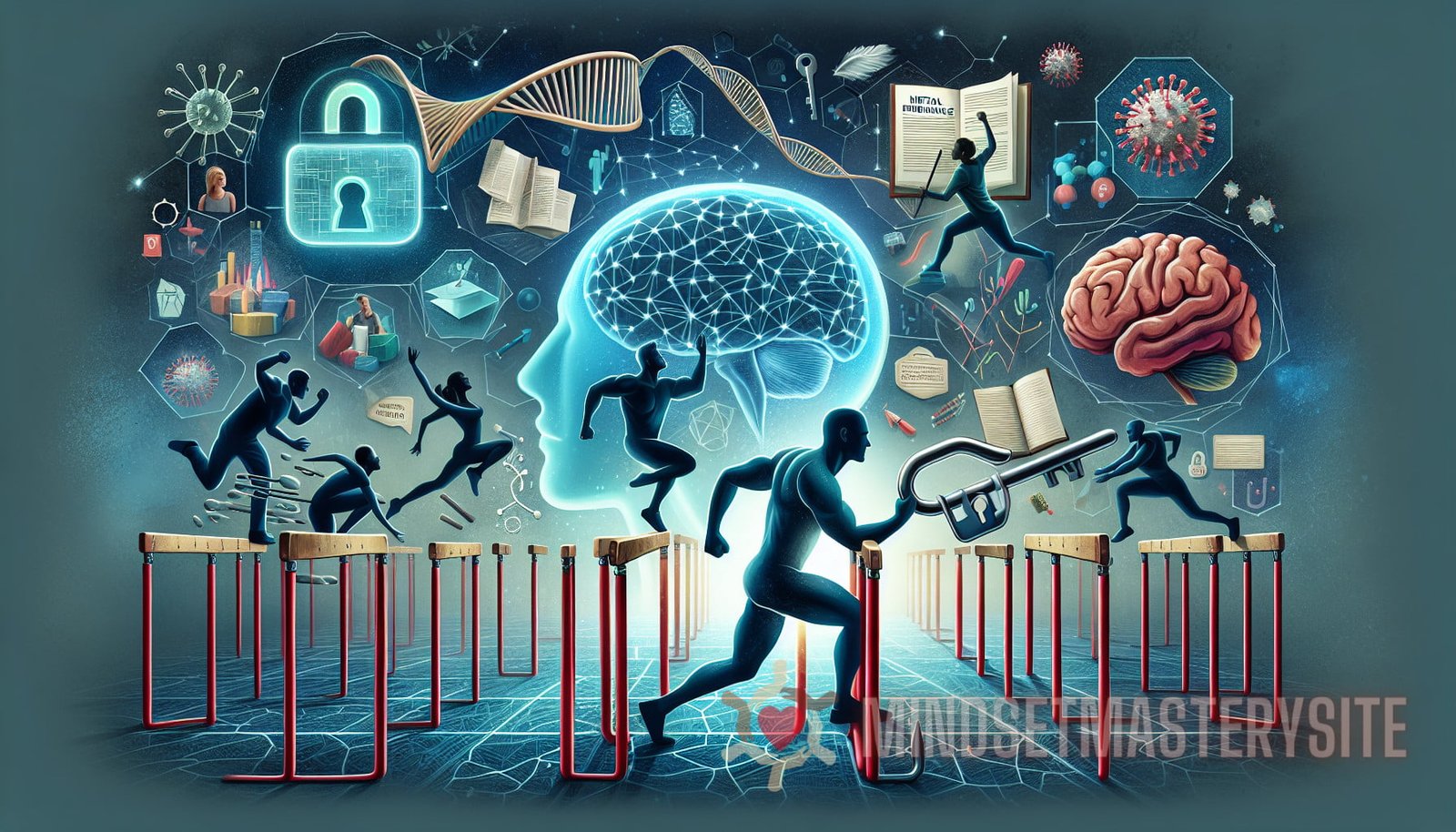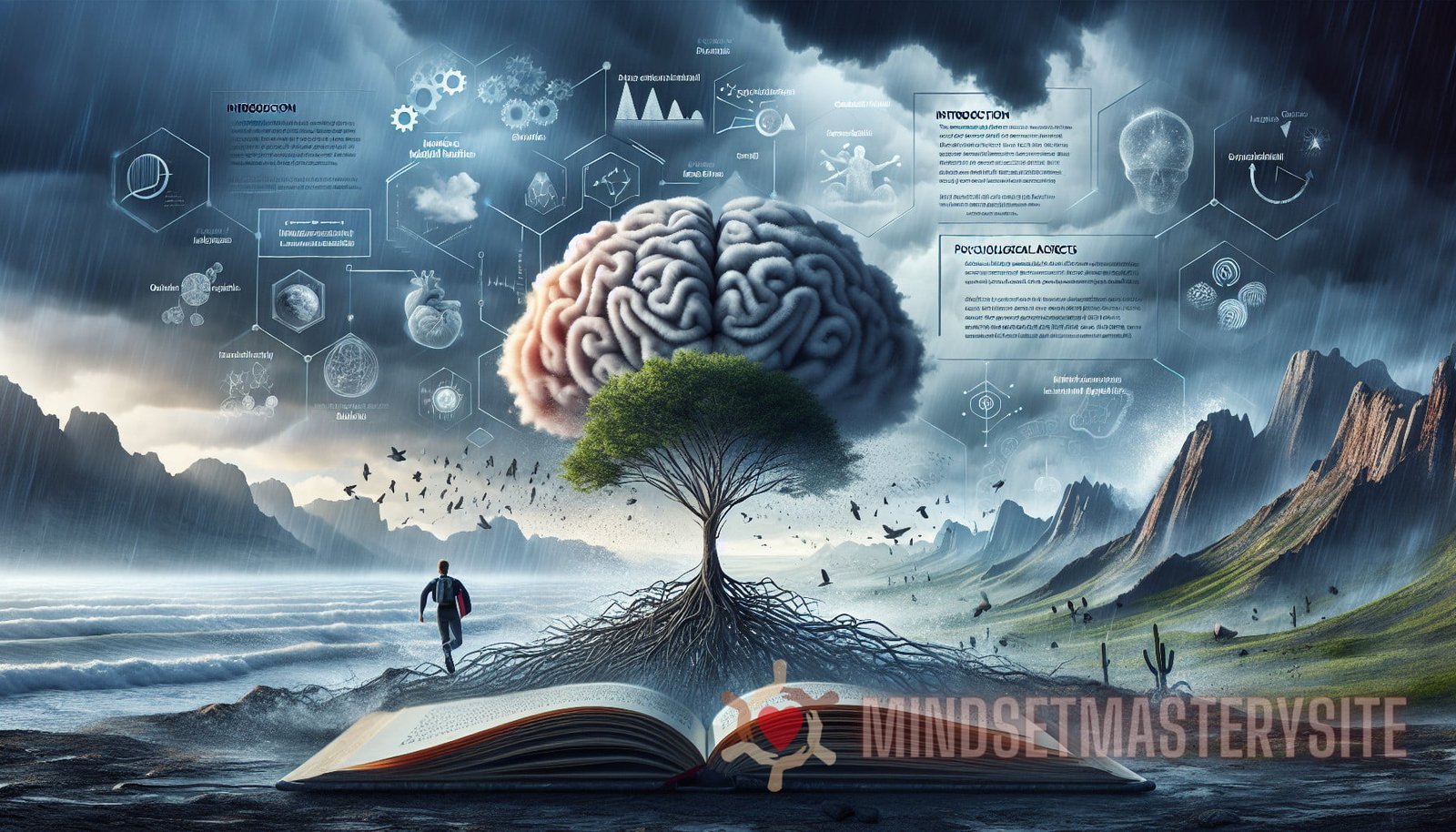Introduction
Life is full of challenges and obstacles that can test our mental resilience. Whether it’s the loss of a loved one, a job setback, or a physical injury, the ability to overcome these hurdles and bounce back stronger is essential for personal growth and success. But what exactly is mental resilience, and how can we cultivate it in our lives?
In this article, we will explore the science behind mental fortitude and its role in overcoming life’s hurdles. We will delve into the psychological and physiological aspects of resilience, and discuss the strategies and techniques that can help us develop and strengthen our mental resilience. By understanding the science behind mental fortitude, we can equip ourselves with the tools to rise above life’s challenges and reach our full potential.
If you’re interested in developing a resilient mindset, check out this article for comprehensive guidance. Additionally, for specialized training on building resilience, click here.
The Science of Mental Resilience
Mental resilience, also known as psychological resilience, is the ability to adapt and bounce back from adversity, stress, and trauma. It is a skill that can be developed through various techniques and strategies. Researchers have found that individuals with high levels of mental resilience are better equipped to handle life’s challenges and are more likely to experience positive outcomes in the face of adversity.
Psychological Aspects of Mental Resilience
The psychological aspects of mental resilience involve cognitive and emotional factors that influence how an individual responds to adversity. These include:
- Optimism: Having a positive outlook on life and believing in one’s ability to overcome challenges.
- Self-efficacy: The belief in one’s capability to successfully handle difficult situations.
- Emotional regulation: The ability to manage and control emotions, especially in high-stress situations.
- Self-esteem: Having a positive self-image and a sense of self-worth.
Fostering these psychological aspects is crucial for developing mental resilience. By cultivating optimism, self-efficacy, emotional regulation, and self-esteem, individuals can enhance their ability to navigate life’s hurdles effectively.
Physiological Aspects of Mental Resilience
The physiological aspects of mental resilience focus on the biological mechanisms that contribute to resilience. These include:
- Neuroplasticity: The brain’s ability to reorganize and adapt in response to experiences and challenges.
- Stress response: How the body and mind react to stress and adversity.
- Inflammation: The immune system’s response to stress and trauma, which can impact mental health.
- Hormones: The balance of hormones, such as cortisol and adrenaline, which play a role in stress and resilience.
Understanding the physiological aspects of mental resilience provides insights into the interconnectedness between the mind and body. By focusing on factors such as neuroplasticity, stress response, inflammation, and hormones, individuals can optimize their physiological well-being and enhance their resilience to life’s challenges.
Strategies for Developing Mental Resilience

Developing mental resilience is an ongoing process that requires deliberate practice and self-reflection. There are several strategies and techniques that individuals can employ to cultivate and strengthen their mental resilience:
1. Practice Mindfulness and Meditation
Mindfulness and meditation are powerful tools for building mental resilience. By cultivating present-moment awareness and practicing non-judgmental acceptance of thoughts and emotions, individuals can develop a greater sense of calm and emotional regulation. Regular mindfulness practice has been linked to increased resilience and improved emotional well-being.
2. Foster Social Connections
Strong social connections and a support network are essential for mental resilience. Building and maintaining relationships with friends, family, and supportive individuals provide a sense of belonging and support during challenging times. Research has shown that individuals with strong social connections are better equipped to handle stress and adversity.
3. Set Realistic Goals and Take Action
Setting realistic goals and taking action towards achieving them is vital for mental resilience. By breaking down larger goals into smaller, achievable steps, individuals can build a sense of accomplishment and motivation. Taking action also helps individuals develop a problem-solving mindset and adaptability when faced with obstacles.
4. Cultivate Optimism and Positive Thinking
Optimism and positive thinking play a crucial role in developing mental resilience. By focusing on the positive aspects of a situation and reframing negative thoughts, individuals can cultivate a more optimistic outlook. Research has shown that positive thinking is associated with better stress management and improved mental well-being.
5. Practice Self-Care and Stress Management
Self-care and stress management are essential for maintaining mental resilience. Engaging in activities that promote relaxation and well-being, such as exercise, proper nutrition, and adequate sleep, can bolster mental health and resilience. Effective stress management techniques, such as deep breathing exercises and time management, can also help individuals navigate challenging situations more skillfully.
6. Seek Professional Support
In some cases, seeking the support of a mental health professional may be necessary to develop and strengthen mental resilience. Therapists, counselors, and psychologists can provide guidance, support, and evidence-based strategies for overcoming life’s hurdles and developing mental fortitude.
If you’re interested in developing a resilient mindset, this article provides comprehensive guidance. Additionally, click here for specialized training on building resilience.
Conclusion
Developing mental resilience is a lifelong journey that requires self-reflection, practice, and the utilization of effective strategies. By understanding the psychological and physiological aspects of resilience and implementing strategies such as mindfulness, fostering social connections, and practicing self-care, individuals can cultivate a resilient mindset and overcome life’s hurdles with strength and fortitude.
Remember, mental resilience is not about avoiding or denying adversity but rather developing the skills and mindset needed to rise above it. With dedication and perseverance, anyone can develop and enhance their mental resilience and thrive in the face of life’s challenges.



